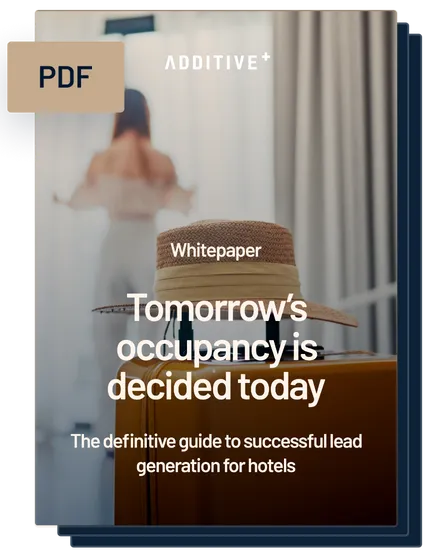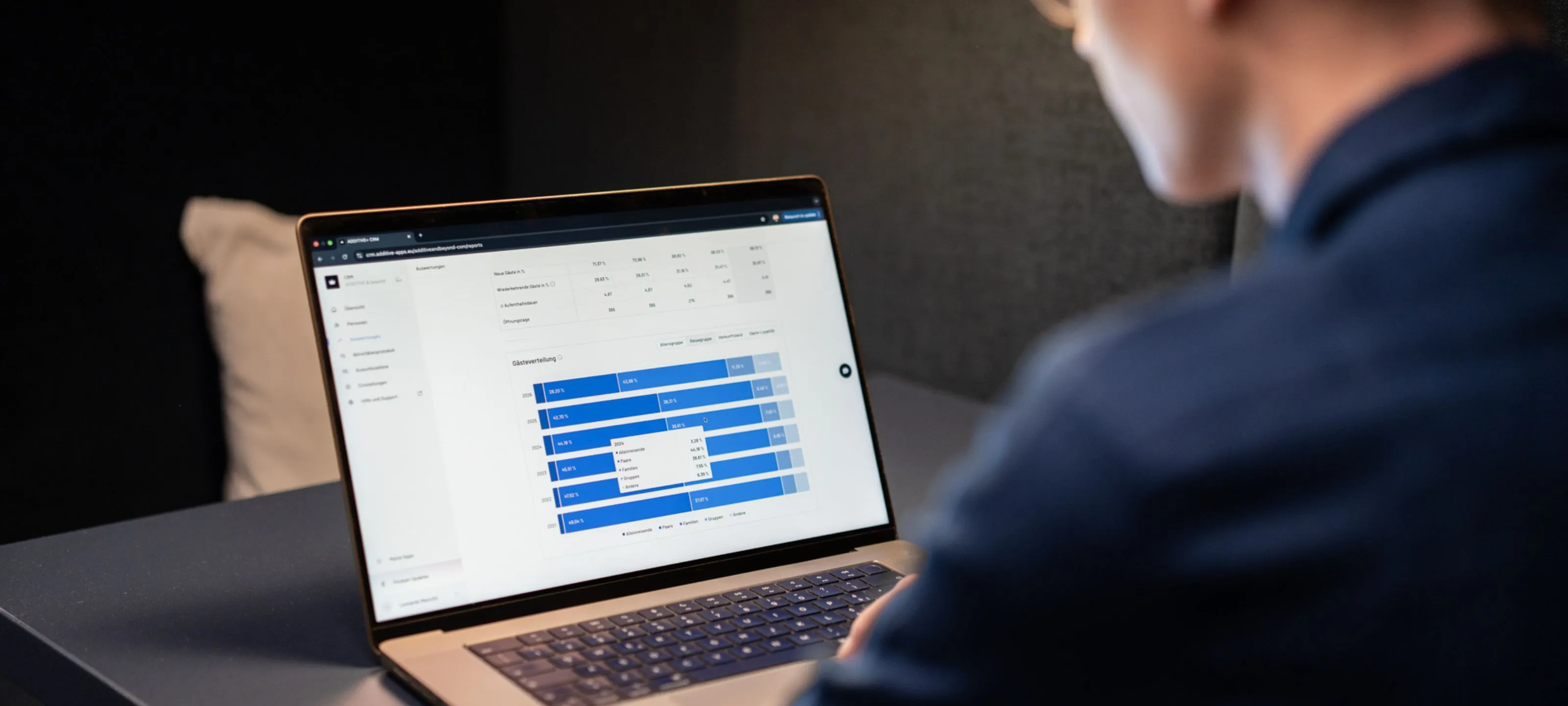
Hotel Lead Generation: Meaning and Purpose

Lead generation is a central issue in hotel marketing. But what exactly is behind it? We explain how you can attract new guests and increase your booking figures with effective lead generation.
In online marketing, lead generation is the process of collecting customer data to keep a company top of mind with its target audience.
For the marketing of hotels, generating guest contacts in the online marketing system is worthwhile because potential guests can be addressed repeatedly and, above all, in a targeted manner on the basis of this data. In the medium and long term, hotels can expand their customer base, promote up-selling and cross-selling, and sustainably increase their revenue.
What is lead generation?
In hotel marketing automation, lead generation is the process of collecting contact information from prospects and potential guests.
This guest data includes:
- Demographic information such as age, location, language, personal contact details
- Booking data such as length of stay, booking lead time, payment history
- Interest or activity data such as wellness, hiking, culinary, etc.
- User behavior on the Internet, such as visits to the hotel website, interaction rate with advertisements or social media channels.
This data can then be managed in the hotel's CRM and used for further hotel online marketing efforts.This article will focus on the methods hotels can use to generate new guest leads and how they can use them for their own hotel marketing.
Why is lead generation important for hotels?
Lead generation for hotels collects data from potential customers that can be used for further targeted marketing efforts. If a potential guest has already heard of a hotel or subscribed to the hotel's newsletter, he or she is more likely to book with the hotel.
Using the information collected about guests and their booking behavior, specific segments, or groups, can be created in the guest database. With these filtered, uniform guest groups, more personalized and, above all, more targeted marketing is possible. As a result, interested parties feel addressed and will book - through the right messages on the right communication channel.
Such a targeted approach is only possible in hotel online marketing with sufficient guest data, which also improves profitability and return on ad spend (ROAS) through successful lead generation.
How hotels generate new guest leads?
Hotels can use a simple system to generate more guest leads for their own marketing. Traditional ways of collecting guest data are, for example, registration for the hotel newsletter. Search engine advertising (SEA) and social media advertising (SMA) are also good ways to reach potential guests.
Similarly, organic social media marketing on appropriate channels or interactions and responses to postings serve as a basis for further hotel online marketing measures in addition to strong customer loyalty. In addition to these tried and tested methods, more and more hotels are turning to on-page lead generation: pop-ups on the hotel website or on possible landing pages that are graphically customized and configured with different content. Options include voucher incentives, but the key is the visitor's email address.
ADDITIVE supports lead generation with appropriate methods by reaching the right target group with professional online marketing. With the generated guest data, hotels can in turn use further marketing methods, whereby the hotel industry also benefits from a higher reservation rate with the ADDITIVE lead marketing campaign.
How hotels use generated guest leads?
Using hotel software, the connected newsletter system or marketing automation software, the generated contacts can be used for hotel marketing. As a result, hotels can increase their reach and awareness - and most importantly, deliver the right messages to the right audience.
For example, with hotel marketing automation software, newly generated guest contacts receive a series of automated welcome emails. In addition, the new contact is added to the hotel's newsletter list and receives relevant information and/or offers from the hotel on a regular basis.
It is worthwhile for hotels to use lead generation to obtain additional information about the target group and to design and deliver customized advertisements on appropriate channels. In addition, these target groups can be used to create additional, new target groups for advertising that are similar to the previously collected guest contacts (so-called lookalike audiences). This not only increases revenue through more inquiries and reservations, but also strengthens guest loyalty.
Book your Hotel Marketing Consultation:
15-Minute Expert Session - Free & without Obligation
- Exclusive one-on-one video call — free of charge, with no obligations
- In-depth assessment of your current digital marketing setup
- How to leverage guest data to drive direct revenue growth
- Proven strategies to boost occupancy and booking performance







.jpg)

.jpg)



.webp)
